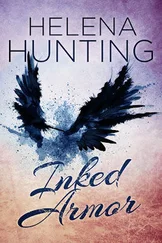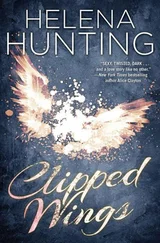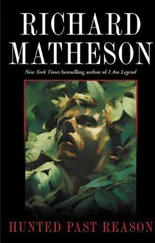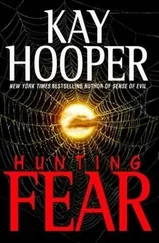“I am coming home with you today,” Daniel declared. “And I shall sleep at the foot of your bed.”
“We shall leave for America as soon as we can!” I exclaimed.
“Hush, both of you!” Mama ordered. “If your mother is not of a mind to believe you, Violeta, then how, in God’s name, does she think you were hurt on these two occasions?”
“She says I am always falling because I’m so clumsy — that my evil disposition has left me unbalanced. And that my uncle would marry me were I not so awkward.”
“You would marry a villain who has … who has done these things to you?” Daniel snarled. He took a step toward her and shook his fist. “Listen to me, you will marry no one!”
“There is a great deal you do not understand,” said Violeta imploringly.
“Dearest child …” said Mama, caressing her cheek.
Violeta stilled her hand. “I must go. I’ve already stayed too long.” She stood up.
“You cannot go!” I shouted. “I shall not let you go back to your home. Mama, tell her she can stay here with us. Tell her! Tell her now.”
My mother did her best to calm me, saying that she would discuss these matters with Papa that very night, but it was all too much for me. I shouted like a banshee and cursed her as she led my friends away. Then I stumbled to the window and threw my shutters open, mortified by my powerlessness. I called after Violeta and Daniel, but that only made her race off, leaving the lad far behind.
*
Later that day my father told me what he had done to Violeta’s uncle Tomás. Two evenings previous, after I had been carried home by the good hunter, he commissioned two petty criminals to destroy each and every clock in Tomás’s shop. The next night, Papa hunted him down to the Willow Tavern, a foul establishment behind the San Francisco Church. He discovered the villain seated at a table fashioned from a barrel, trying to drink away his ruin with a half-empty bottle of gin and gabbling with two cronies guffawing like mules.
Father marched up to the group and introduced himself as a Mr. Burns. “Sir, I have learned of your misfortune and I should like to interest you in a proposition,” he said.
He explained to the men that he had acquired a watchmaking shop in Lisbon and was hoping to find a man of proper training to take charge. He suggested that a stroll outside might allow Gonçalves and himself to carry on their conversation in a more private manner. As there was no point in letting a bottle of gin go half empty, he purchased it for them.
Violeta’s uncle limped along the streets, owing to the hunk of flesh that Fanny had happily ripped from his thigh. Papa strolled arm in arm with him, encouraging him to keep his lips moistened with drink. With the gin thus emptied, he steered the man off into a darkened alley, where he brought the glass bottle down squarely onto his head.
Gonçalves collapsed to the cobbles but did not lose consciousness. He moaned piteously, “Everything is gone, all gone,” and began to weep.
Papa now informed the man of his true identity, explaining that he had had his shop smashed to pieces for hurting me and Violeta. “And I will have you reduced to kindling as well, unless you leave for Lisbon now and never return. That is your only choice!”
Gonçalves was nursing his bleeding head in his hands and struggling to stand back up.
Papa squatted next to the limp wretch and held the glass spikes of the broken bottle to his face. “I shall put you on the next coach to Lisbon and even pay your way. But should you ever return to Porto, I shall take a bottle just like this one and twist it round your nose until you have neither nostrils nor mouth nor eyes.”
At precisely twenty-one minutes past seven by my father’s watch, Tomás Gonçalves was gone forever from our city.
*
Without Gonçalves and the income provided by his shop, Violeta’s family was rendered destitute in a matter of weeks, and all of the children were forced to go to work. Violeta became a wick-cutter at a workshop just off the Rua dos Ingleses. Inside that cavernous factory she worked from dawn to dusk, and all her wages were given directly to her mother, so she had nary a farthing to her name.
Saturdays and Sundays ought to have been her days of freedom and light, but as punishment for the “lies” that had lost her family its champion, her mother kept her imprisoned in their home. At times her ankle was even chained to her bed, I was told by Mama, who had witnessed this indignity herself. On these occasions she was made to embroider prayers on towels, for sale in the marketplace.
Perhaps owing to my father’s partial responsibility for their poverty, Mama never failed during those first difficult weeks to carry carrots, potatoes, and other vegetables to Violeta’s home on Saturdays. In this way, she said, they might at least partake of a warm and wholesome soup. She was the one who kept Papa and me informed about the lass. And it was she who told me as well that Daniel and I were forever forbidden from paying a visit to her house, for her mother maintained that we’d been a ruinous influence on Violeta’s life. Even so, I later discovered that he stood below her window all night on several occasions, trying in vain to get her to appear at her shutters. He ended this practice when he was told by Violeta’s younger brother that their mother beat her every time he was spotted in their street.
About ten weeks after her uncle’s disappearance, in September of 1801, Violeta’s mother even went so far as to call us curs who had spoiled her daughter’s innocence. The quarrel provoked by this assertion was to mark the end of Mama’s visits.
Upon informing me of this conversation, Mama added that she had been told prior to her outburst that Violeta would soon be starting additional work. Every Saturday she would be selling — at a stall in New Square — the embroidered goods she and her mother were sewing.
Mama gave thanks to heaven for this, since she saw it as our chance to help the lass. She encouraged Daniel and me to visit her there and offer her comfort. If anyone from her family was present, however, we were — under no circumstances — to allow ourselves to be seen by them. “If you take another risk with Violeta’s well-being, I shall never ever forgive either of you,” she warned us.
*
Daniel and I endeavored on numerous occasions over the next weeks to speak with Violeta at her stall, but whenever she saw us approaching, she seemed to choke as though she had swallowed poison. She would reveal nothing of her heart to us and would obviously have preferred to burrow down into the cobbles and bury herself rather than have to speak of her life.
As time went on, she grew more pale and drawn. Lice crawled freely over her bonnet, and I once spotted a red boil oozing pus on her wrist. Another time I saw what looked to be a burn on the palm of her hand.
The specific effects of her brutalized state on Daniel came as a surprise to me, likely owing to my youth; instead of conceiving a plan to kidnap her or blackmail her mother, as I might have expected, he began to inflict injury upon himself and others, frequently ending up in bloody fisticuffs with other boys and even with me. He hit me so hard once — as I was trying to drag him away from a young priest with whom he’d started a quarrel — that I awoke to find him sobbing over me and begging my forgiveness. “Look what I’ve done to you,” he wept.
He carried me all the way home. Cradled in his arms, I felt his strength enveloping me, as it had before our troubles began. I never told my parents what he’d done. I explained to Mama that I’d fallen off the cathedral wall while imitating a goose.
Soon, Daniel began to go to the taverns in the Ribeira district to beg gin, rum, and cachaça, a liquor made in Brazil from cane. When drunk he often called himself unworthy of Violeta. He cursed her at times as well, as damnable and selfish. This perplexed me, but I can see now that his behavior, born of despair, was aimed at confirming his vileness in his own eyes and those of others. Yet his actions only bound me to him closer than ever.
Читать дальше












